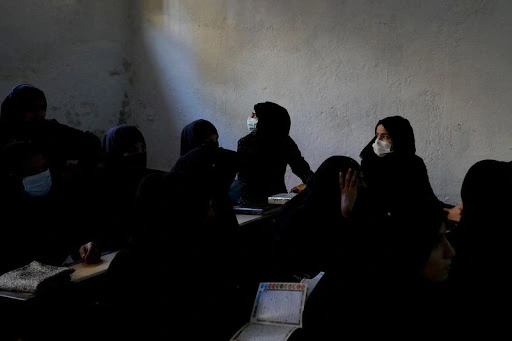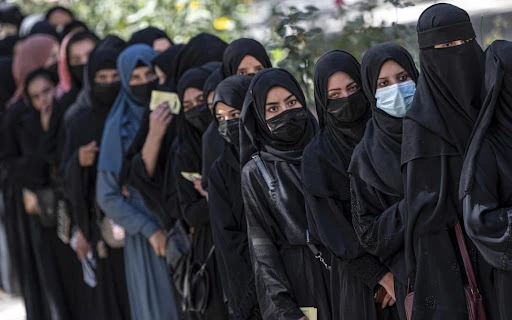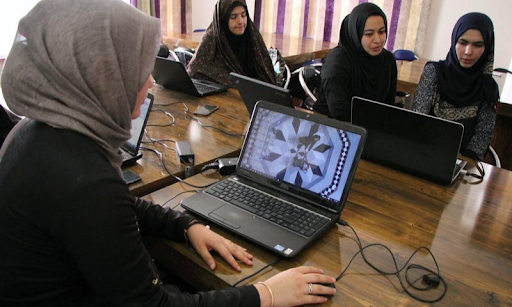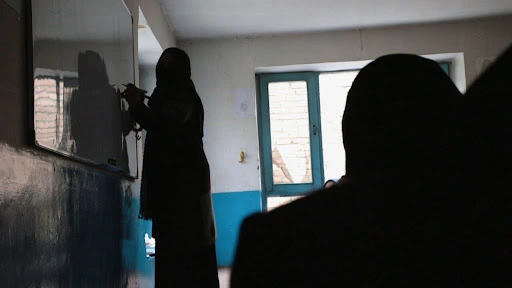
On August 15, 2021, the lives of Afghan citizens suffered an intense changeover when Taliban forces took control of Kabul. It is for the first time in decades that the group was able to enforce its strict ideology across the entire nation. The most harshly influenced demographic has been young girls and women, who now encounter significant restrictions on their daily lives and are excluded from many activities they once enjoyed freely. The Taliban has restrained women from attending schools and universities. Around 1.1 million girls left formal education after the Taliban’s arrival. In December 2022 Afghan government banned higher education for women, and almost 100,000 females were affected by this ban. The new generation of Afghan girls is left uncertain about their future. Taliban denied the basic right to education of women and girls, during their first rule in Afghanistan from 1996 to 2001, and upon retrieving power in 2021. This oppression extended to girls who had reached puberty, denying them access to education.

The Taliban’s Minister for Higher Education, Neda Mohammad Nadeem, has claimed that women are not allowed to attend school due to their negligence to fit the specified behavior of “proper women” in public settings, which includes not sticking to the Emirate’s stringent dress code. Nevertheless, this issue expands beyond the administration’s perspective on the hijab. The Taliban gathers religious justifications for their strict policies. They claim that allowing girls and women to access education opposes Islamic principles, even going as far as to declare that the sciences are inappropriate for them. The Taliban manipulates its own interpretation of Sharia Law, the traditional Islamic legal code recognized for its rigid guidelines on the conduct of girls and women. Nevertheless, many respected Muslim scholars have denied the Taliban’s assertions, arguing that there is no religious basis for blocking women from education. Islam has clear instructions for getting education freely both for men and women. They emphasize that a “gender-based contradiction of education has no religious justification.”

Despite these barriers, women and young girls across Afghanistan are fighting for their rights not only to obtain a just education but to be recognized as significant parts of society and argue back for their dignity and honor. Hidden educational initiatives have arisen, working both virtually and in person, offering many Afghan girls the opportunity to continue their education despite the dictatorial conditions. In an effort to help girls achieve their dreams, underground universities have started taking shape across the country, even carrying virtual classes. Over 2,500 Afghan women are bravely pursuing their education despite the Taliban’s restrictions. They are currently studying virtually from the safety of their homes. A well-known institution, the University of the People (UoPeople), an American online university, has started to help Afghan women to continue their studies. UoPeople’s goal is to extend educational access to individuals worldwide who lack other avenues to attain a college degree. After the Afghan government ban on women’s education 21,000 women started online education through this university.
In order to keep young girls thriving, parents are finding alternative means, going as far as risking their lives to create a hidden education system that will provide university-level courses for students. Sodaba Nazhand is also one of the pioneer Afghan women behind this movement; she stood against the Taliban and started work for girls’ education.

While girls and women are able to continue their education, seek knowledge, and obtain skills through these underground education systems. However, there is much fear among family members and the students themselves, who know the consequences of getting caught disobeying the Taliban. Several of these underground institutions are providing education virtually for safety and easier access, although not everyone has access to electronics or wifi. Taliban rule has led to poverty, most of the people have no facilities for getting an education. There is a ban on internet usage in some areas. So, to cope with this situation Some people have even begun to be held in person, as houses become secret classrooms.
For the past two decades, UNESCO has played a considerable role in supporting Afghanistan’s education system. This effort included the thriving implementation of a literacy program that benefited over 600,000 youth and adults, with 60% of the beneficiaries being women across 20 provinces. Additionally, UNESCO launched a campaign reaching out to over 20 million Afghans to raise awareness about the right to education for women. There is a great hope that all these collective efforts will lead Afghan women to achieve their goals.





